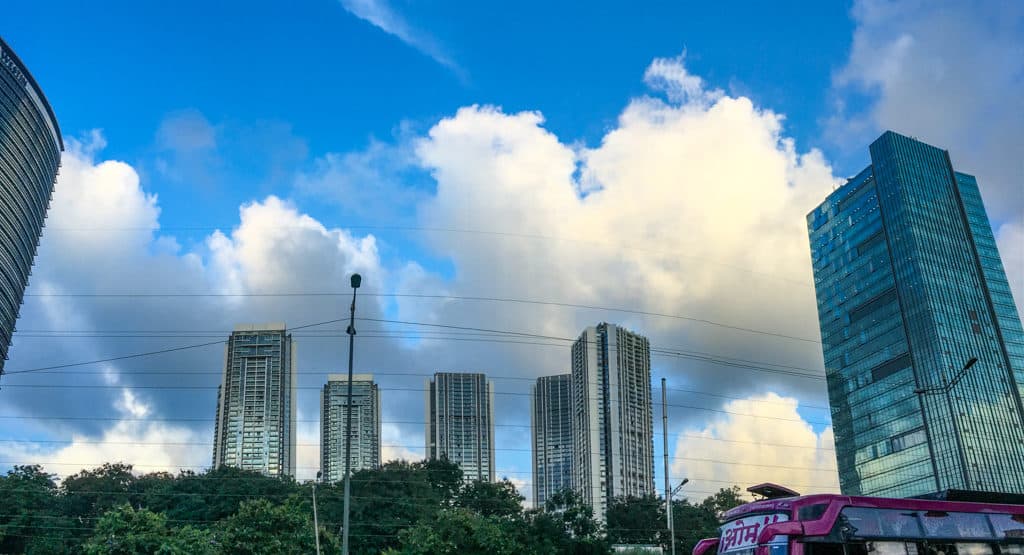Mahim Church in Mumbai aims to go carbon neutral within 2 years
St. Michael Church in Mahim, one of Mumbai’s oldest churches aims to go carbon neutral within the next two years, a decision in line with Brihanmumbai Municipal Corporation’s (BMC) Mumbai Climate Action Plan (MCAP). A greenhouse gas (GHG) emissions inventory analysis was conducted to accurately assess how they can cut back on emissions.
According to environmental engineer Emmanuel D’Silva, Mahim church emitted a total of 44 metric tonnes of carbon dioxide equivalent (tCO2eq) emissions in 2021, which can be taken as its annual baseline.
“Not surprisingly, electricity consumption was the biggest contributor to the church’s carbon footprint, emitting 38.52 million tCO2eq per year. Transport, which is usually a big emitter, was not so large in its share, contributing 5.75 tCO2eq annually,” said Emmanuel.
Source: Hindustan Times
Read more: Discussion: Can the Mumbai Climate Action Plan (MCAP) build a climate resilient city?
Lokhandwala lake to be conserved
Maharashtra environment minister Aditya Thackeray on June 16th announced that his government would be taking measures to conserve the Lokhandwala Lake – currently in poor condition.
Environmentalists have welcomed the decision, adding that the water body used to be a birds’ paradise years ago, but illegal fishing and encroachments have destroyed the lake significantly.
Others observed that the protection of water bodies in the city must be the government’s top priority, since Mumbai is at risk of submerging under water due to climate change.
Source: The Times of India
COVID cases up by four times in Mumbai since June 1st
On June 16th, Mumbai logged 2,366 new COVID cases – more than a fourfold rise in active cases since the beginning of the month. Currently, the active count stands at 13,005 against 2,970 on June 1st.
According to the BMC, 96% of patients detected every day are asymptomatic. June 16th marked the second consecutive day when daily cases crossed 2,000, and with two more deaths, the death toll for the month touched 12.
“We have 250 Covid-19 patients at present of whom 37 are in the intensive care unit and six are on oxygen support. Those critical-care patients have been transferred from peripheral or private hospitals where they were admitted for some other treatment and tested positive. None of them is direct admissions for COVID like we had in the earlier waves,” Dr said Balkrishna Adsul, dean of Sevenhills hospital.
Given the uncertainty around but the inevitability of sub-variants, doctors in the city are asserting the need for booster dosage, which, they say, has to be ramped up.
Source: Hindustan Times
Second cleanest air day of Mumbai, this week
On June 14th, Mumbai witnessed its second cleanest air day since air quality recording began in 2015, with an air quality index (AQI) value of 14. On September 4th, 2019, the AQI had touched a record low of 12.
“Both Monday and Tuesday this week are among the cleanest ever air days for Mumbai since we began recording pollution levels in 2015. It can be attributed to favourable weather conditions. Recent rains have washed airborne pollutants out of the atmosphere and strong winds are keeping them from accumulating again,” said Gufran Beig, project director, System of Air Quality and Weather Forecasting and Research’s (SAFAR).

However, on the same day, an updated index known as the Air Quality Life Index (AQLI), which is published annually by the University of Chicago’s Energy Policy Institute (EPIC), found that exposure to PM2.5 — respirable particulate matter less than 2.5 micrometres in diameter – could be reducing the lifespan Mumbai citizens by an average of 2.8 years.
Source: Hindustan Times
No Development Zones in the city to remain untouched
No Development Zones (NDZs) in the city, officially renamed Special Development Zones (SDZs), are to be remained untouched, as announced by Chief Minister Uddhav Thackeray. He has refused to sanction construction on these sites, citing harm to the environment.
In the Development Plan 2034, over 30 SDZs were proposed to be carved out NDZs. Mumbai has approximately 3,734 hectares of SDZs, which is about 8.59% of the city’s land mass.
Environmentalists have expressed their approval of the decision, as well as its timing, as Mumbai stands at a critical juncture in its climate future. “Last year, when the Centre increased the floor space index FSI) to be used in coastal regulation zones (CRZs) from 1.33 to 4, I was pleasantly surprised to hear the chief minister ask how they could do this. If the SDZs are indeed scrapped, it will be a very positive step to protect the environment as also to protect people who invest in properties in these vulnerable areas,” said environmentalist Debi Goenka.
Source: The Times of India